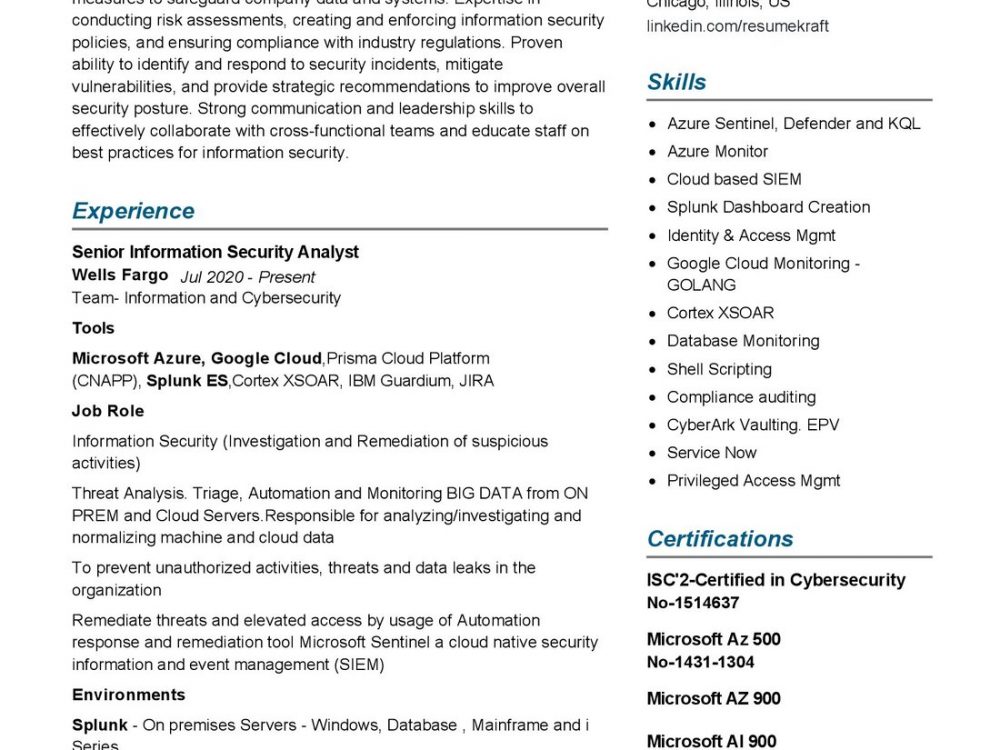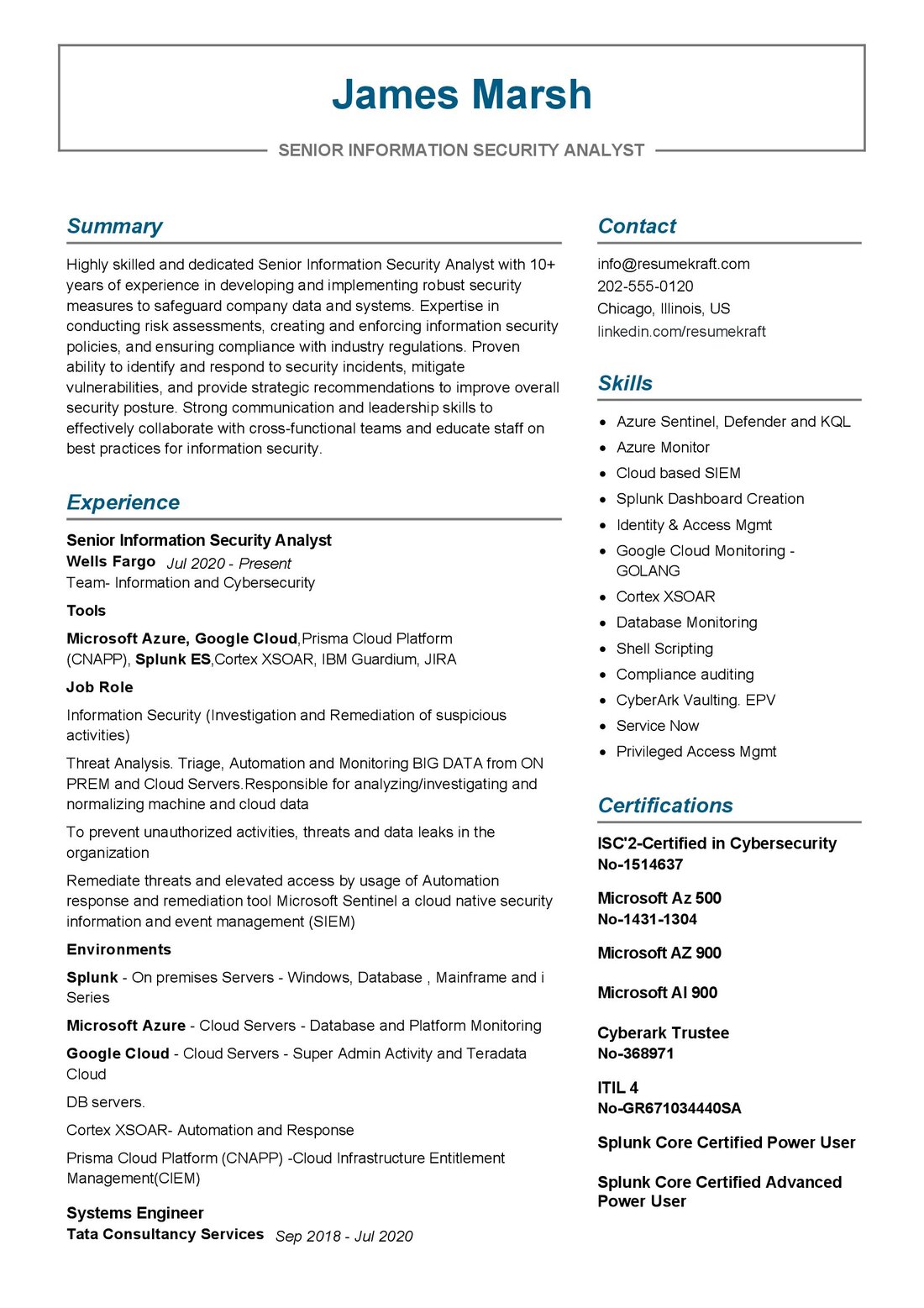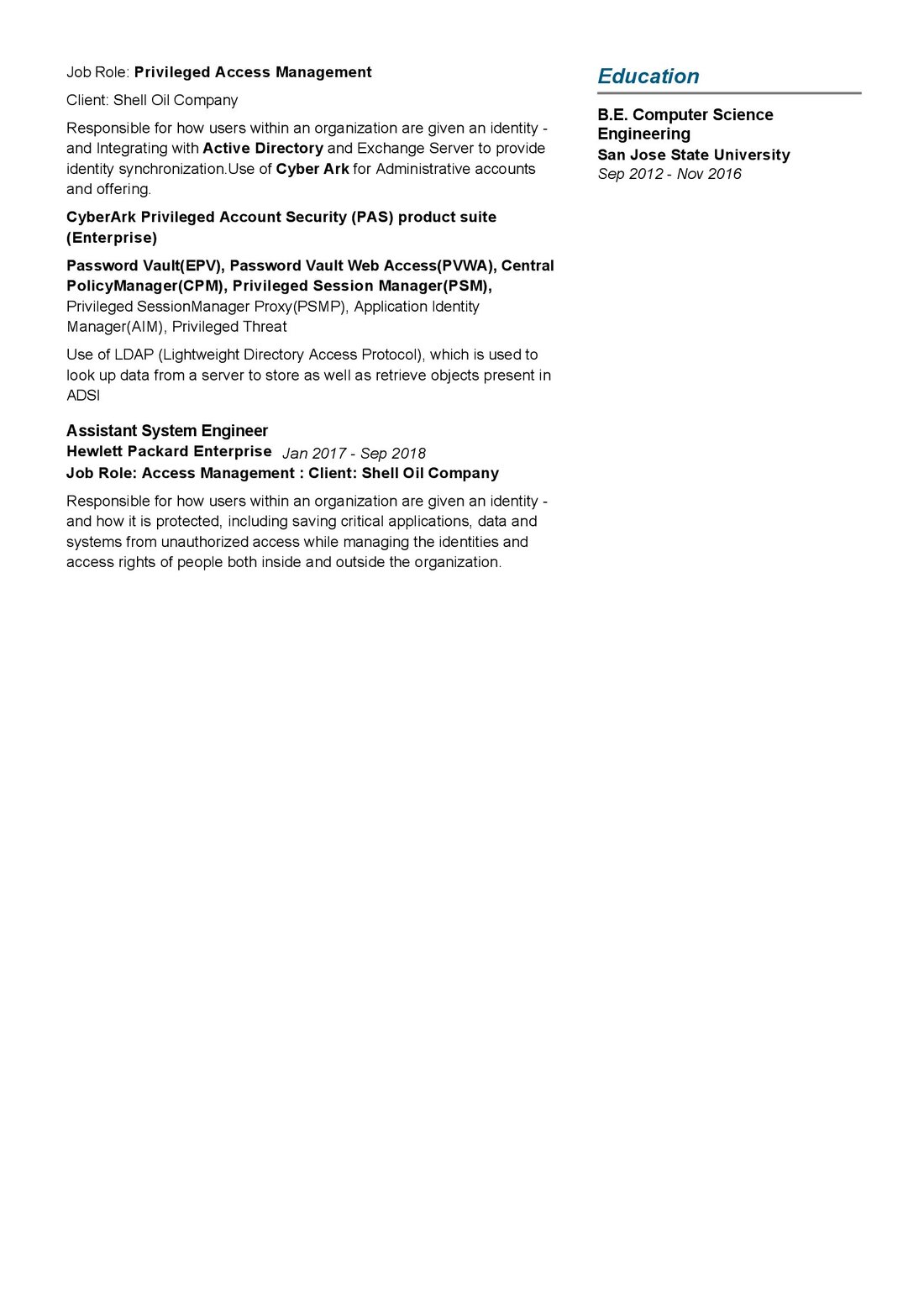What is the Role of a Senior Information Security Analyst?
In today’s digital age, the role of a Senior Information Security Analyst is more critical than ever. These professionals play a pivotal role in safeguarding an organization’s sensitive data and ensuring its digital infrastructure remains secure. Let’s explore the multifaceted role of a Senior Information Security Analyst and understand the key responsibilities that come with it.
A Senior Information Security Analyst is responsible for protecting an organization’s digital assets from cyber threats and ensuring compliance with security standards and regulations. They are often seen as the guardians of data integrity, confidentiality, and availability, working diligently to prevent and respond to security incidents.
What are the Job Requirements for a Senior Information Security Analyst?
Becoming a Senior Information Security Analyst requires a combination of education, skills, and experience. Here are the key requirements for this role:
- A Bachelor’s or Master’s degree in Computer Science, Information Security, or a related field, showcasing a strong foundation in the field of information security.
- Profound knowledge of cybersecurity principles, including threat detection, risk assessment, and vulnerability management.
- Experience in information security roles, with a track record of progressively increasing responsibilities.
- Strong analytical and problem-solving skills to identify and mitigate security risks.
- Excellent communication skills to collaborate with cross-functional teams and educate employees on security best practices.
- Certifications such as CISSP (Certified Information Systems Security Professional) or CISM (Certified Information Security Manager) are highly beneficial.
Continuously updating your knowledge in the ever-evolving field of information security is crucial for success in this role.
What are the Responsibilities of a Senior Information Security Analyst?
The role of a Senior Information Security Analyst is dynamic and challenging. Here are the core responsibilities that define this role:
- Conducting regular security assessments and audits to identify vulnerabilities and weaknesses in the organization’s digital infrastructure.
- Developing and implementing security policies, procedures, and standards to protect against data breaches and cyberattacks.
- Monitoring network traffic and analyzing security logs to detect and respond to security incidents in real-time.
- Collaborating with IT teams to ensure that security measures are integrated into the organization’s systems and applications.
- Leading incident response efforts, including containment, eradication, and recovery from security breaches.
- Educating employees on security best practices and conducting security awareness training programs.
- Staying updated with the latest cybersecurity threats and trends to proactively adapt security measures.
Each responsibility comes with its own set of challenges and opportunities to make a significant impact on an organization’s security posture.
Senior Information Security Analyst Resume Writing Tips
Your resume is your ticket to showcasing your expertise and experience as a Senior Information Security Analyst. Here are some tips to create a compelling resume:
- Highlight your experience in handling security incidents and your role in mitigating them.
- Include specific examples of security policies or procedures you’ve developed and their impact on the organization’s security.
- Quantify your achievements by mentioning the percentage of risk reduction or the number of successful security audits you’ve conducted.
- List relevant certifications prominently to demonstrate your commitment to professional development.
- Customize your resume for each job application to emphasize the skills and experiences most relevant to the position.
Your resume should effectively communicate your ability to protect an organization’s digital assets.
Senior Information Security Analyst Resume Summary Examples
Your resume summary is your opportunity to make a strong first impression. Here are some examples:
- “Experienced Senior Information Security Analyst with a proven track record in threat detection and incident response. Adept at developing and implementing robust security measures to protect sensitive data.”
- “Dedicated Senior Information Security Analyst with expertise in cybersecurity policies and procedures. Successfully reduced security risks by 30% through proactive vulnerability management.”
- “Detail-oriented Senior Information Security Analyst with a focus on continuous improvement. Led incident response teams to minimize the impact of security breaches and enhance overall security.”
Your resume summary should be concise yet impactful, showcasing your key strengths.
Building Your Career as a Senior Information Security Analyst
Your journey in the field of information security begins with a solid educational foundation:
- Master of Science in Information Security, XYZ University, 2017.
- Bachelor of Science in Computer Science, ABC University, 2013.
- CISSP Certification, demonstrating your expertise in information security, 2018.
Your educational qualifications set the stage for your successful career as a Senior Information Security Analyst.
Essential Skills for a Senior Information Security Analyst
Your skill set as a Senior Information Security Analyst is crucial to your success in protecting an organization’s data. Here are the essential skills you should possess:
Soft Skills:
- Leadership and team collaboration, as you’ll often work with cross-functional teams in security initiatives.
- Strong communication skills to convey complex security concepts to non-technical stakeholders.
- Problem-solving abilities to identify and address security vulnerabilities effectively.
- Attention to detail, ensuring that no security threat goes unnoticed.
- Adaptability to stay ahead of emerging security threats and technologies.
Hard Skills:
- Proficiency in security tools and technologies such as firewalls, intrusion detection systems, and antivirus software.
- Knowledge of security frameworks and standards like ISO 27001 and NIST.
- Experience with security information and event management (SIEM) systems.
- Incident response and forensic analysis skills to handle security breaches effectively.
- Programming and scripting skills to automate security tasks.
Each skill in your toolbox is essential for protecting an organization’s digital assets.
Common Mistakes to Avoid When Writing a Senior Information Security Analyst Resume
When crafting your resume, avoid these common mistakes:
- Using generic, non-specific language that doesn’t highlight your unique qualifications.
- Focusing too much on technical details without explaining their impact on security.
- Ignoring the importance of a well-written cover letter to accompany your resume.
- Overloading your resume with technical jargon that may be unclear to non-technical readers.
- Neglecting to proofread your resume, which can create a negative impression.
Steer clear of these pitfalls to create a resume that effectively communicates your value as a Senior Information Security Analyst.
Key Takeaways for Your Senior Information Security Analyst Resume
As you prepare your resume for the role of Senior Information Security Analyst, remember these key points:
- Emphasize your experience in threat detection, incident response, and policy development.
- Showcase your certifications to demonstrate your commitment to professional growth.
- Quantify your achievements to highlight your impact on security.
- Customize your resume for each application to align with the specific job requirements.
By following these guidelines, you can create a resume that sets you apart as a qualified Senior Information Security Analyst.
Ready to take the next step in your career as a Senior Information Security Analyst? Create a compelling resume and get started today.
Finally, feel free to utilize resources like AI Resume Builder, Resume Design, Resume Samples, Resume Examples, Resume Skills, Resume Help, Resume Synonyms, and Job Responsibilities to create a standout application and prepare for the Senior Information Security Analyst job interview.



